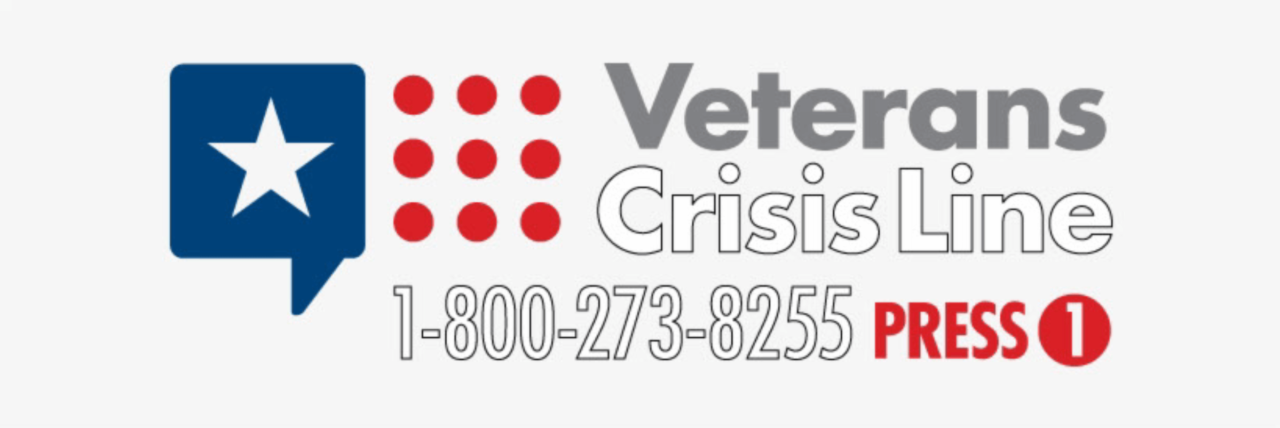Suicide Prevention
Suicide claims thousands of lives every year and affects all ages, genders, and ethnicities. The rate for Military and Veteran Suicide is double that of the civilian sector. Risk factors such as PTSD, MST, TBI, depression, chronic pain, as well as family history often lead to these many deaths.
Family and friends are often the first to recognize that a loved one may be contemplating, considering, or even planning suicide, and are in a good position to ask their loved one if they are thinking of taking their own life. Though asking may be difficult, studies show it can, and does, often contribute to fewer suicide attempts. There are many signs of suicide, such as: talking about wanting to die, feelings of hopelessness, or sudden changes in behavior, like taking unexplained risks or giving away prized possessions. Assist and encourage your loved one to get the help they need.
IMPORTANT MESSAGE: If you are considering harming yourself or someone else, you should contact 988 or call 1- 800-273-8255 and dial “1” for veterans. If harming has already taken place or in the process of taking place, please call 911.
PTSD Resources
Post-Traumatic Stress Disorder (PTSD) develops in some people who have experienced a shocking, scary, or dangerous event. Feeling frightened after a scary, life-threatening, or extremely stressful event is normal. Most people recover over time without too much of an affect on their daily lives, for others, recovery does not come so easily, and they continue to feel frightened, stressed, or anxious, even though all is well in their lives.
For these people, a psychiatrist or psychologist will diagnose them with PTSD. Often, people with PTSD exhibit symptoms within a few months, but PTSD can also appear years later after a qualifying event. Doctors look for symptoms such as: nightmares, or mentally reliving the traumatic event over and over, possibly with a racing heart rate or sweating. One may also exhibit other mental, mood, or avoidance symptoms. When these symptoms begin, the majority of people with PTSD recover in less than one year, but for others, it is never-ending.
If you are looking for help or support for yourself, a friend or family member. Please review the organizations below. They are fully vetted and offer a wide array of help.

Drug and Alcohol Mis-use
Sometimes, people turn to alcohol or drugs in an attempt to relieve stress or the symptoms of Post-Traumatic Stress Disorder (PTSD), depression, or other mental health conditions. Misusing alcohol and/or drugs can lead to substance use disorders (SUD) and serious health, relationship, employment, and legal problems.
Some symptoms of SUD include:
- Increased tolerance (the need to drink more alcohol or use greater quantities of drugs to get the desired effect)
- An inability to stop drinking or using drugs despite negative consequences
- Feeling sick when drinking or drug use stops.
Fortunately, there are proven ways to help Veterans recover from alcohol or drug use disorders.
Traumatic Brain Injury (TBI)
Traumatic Brain Injury (TBI) is a serious public health problem in the United States. Each year, TBI contributes to a substantial number of deaths and cases of permanent disability. In 2014, there were approximately 2.87 million TBI related emergency department visits, hospitalizations, and deaths in the US, including over 837,000 of these health events involving children.
A TBI is caused by a bump, blow, or jolt to the head, or a penetrating head injury that disrupts the normal function of the brain. Not all blows or jolts to the head result in a TBI. The severity of a TBI may range from “mild,” i.e., a brief change in mental status or consciousness to “severe,” i.e., an extended period of unconsciousness or amnesia after the injury.
Center for Disease Control research and programs work to prevent TBI and help people better recognize, respond, and recover if a TBI occurs.